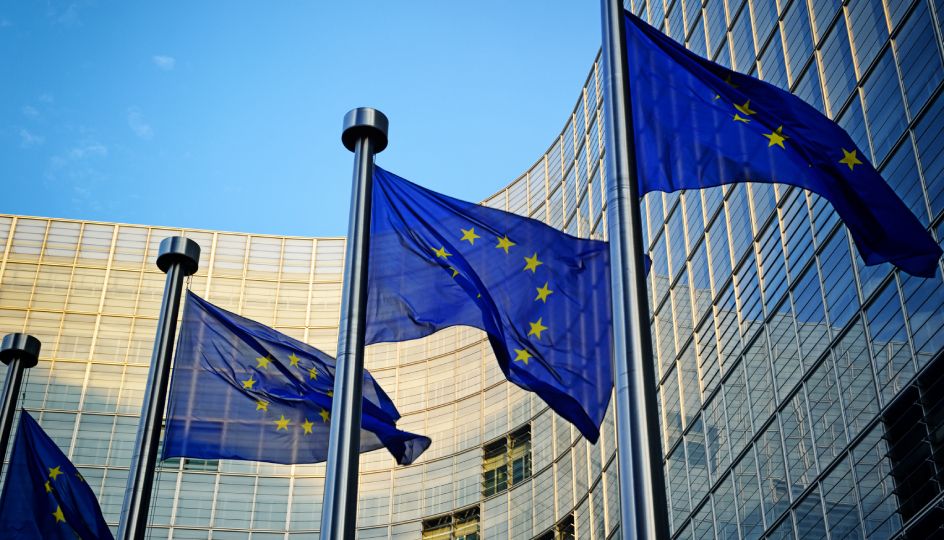5 HR aspects to consider when expanding operations to Europe

Doing business in the world’s largest single market area simply makes sense. But foreign companies need to be prepared for Europe’s varied HR rules and regulations.
There’s a lot to gain from establishing operations in Europe, particularly the European Union, with its reduced trade barriers, lower business costs and increased efficiency as you sell your goods and services to a 500 million-consumer market. But the EU’s lack of border bureaucracy and harmonisation of company law doesn’t extend to all aspects of human resources requirements.
Here are five HR-related issues you need to consider when setting up in Europe. If you have any questions or need clarification on any points, simply get in touch with our local experts.
1. Work permits
While citizens of the of the EU, European Economic Area (EEA) and Switzerland are free to live and work in EU Member States, third country nationals must apply for work visas. European countries set their own requirements and criteria for granting these visas based on specific labour needs. It’s important to note that a Schengen ‘work visa’ covering multiple European countries does not exist.
Qualified or highly-qualified third country nationals can be hired in France on a multi-year ‘passeport talent’ while in Hungary the hiring of these nationals must be approved by the Labour office. Similarly in Germany, the Federal Employment Agency must grant approval, and usually does, if the person you’re looking to hire has been given an offer that meets all local employment requirements. However there must be no job applicants with ‘priority rights’ – ie. German nationals – available to fill the position. Switzerland makes a certain number of permits available to third country nationals, who must receive permission to work before entering the country.
2. The Brexit effect
The United Kingdom’s forthcoming exit from the EU raises issues with regard to employment law. Currently UK workplace law is based on EU labour law, and the UK may choose to initially continue to uphold existing rules governing annual leave and other entitlements, health & safety, employee rights during mergers & acquisitions among other points. But some changes are expected in the future.
Probably the most concerning issue for international businesses looking at the UK as a base is the availability of talent. Since the 2016 ‘leave’ vote, the number of EU nationals working in the UK has fallen – most recently by 61,000 in the last quarter of 2018. The number of non-EU nationals working in the UK increased however, by 130,000. It’s a mixed blessing, as while talent may still be available, EU nationals potentially need to navigate seven different ways of remaining in the UK after Brexit. In order for employers to secure highly-skilled individuals that aren’t UK citizens or residents, and convince them to stay in the country long-term, they may need to be willing to jump through some bureaucratic hoops. Sponsorship of an employee in the UK can involve obtaining certain licenses, paying visa fees amounting to thousands of pounds and following prescribed recruitment rules.
Just 11% of the proactive businesses we surveyed had audited their employees’ work locations, immigration statuses and employment contracts ahead of Brexit.
3. Employee rights and benefits
EU labour law protects the rights of workers, but entitlements such as annual and other paid leave can vary country-to-country. Four weeks of paid leave is the minimum, while 34 days is the average annual leave and public holiday entitlement. Additional benefits or ‘work perks’ (full or partly) paid by the employer are common and include subsidised transport passes, gym memberships, lunch vouchers, healthcare and paid days off for weddings or funerals.
If you’re new to doing business in Europe, you also need to understand how unions, works councils and collective bargaining agreements influence the workplace. Employees have a right to join them, and these groups and agreements can shape everything from pay rates to benefits and overtime conditions. They also play a role in monitoring employer compliance with the labour law. In the Netherlands, businesses that employ 50 or more people must have a works council, and they must be consulted when making major decisions.
4. Payroll processing and management
The ‘norm’ across Europe is to process payroll monthly, however this can differ by country and industry. Payslips must be issued to employees (use of the local language on payslips can be mandatory) and countries are increasingly making digital payslip delivery methods available.
The French payslip is notoriously complex, and can stretch to 40 lines of text detailing various deductions. With this year’s implementation of the PAYE tax system an additional line has been added, and French employers now have extra tax collection and reporting obligations.
5. Data privacy
Europe’s General Data Protection Regulation (GDPR) came into effect on 25 May 2018 and many businesses are still working through what it means for them. GDPR impacts EU and non-EU businesses operating in the region that deal with the data of EU citizens - this includes HR departments.
GDPR must be reflected in privacy policies, and payroll managers must adequately store and control access to the personal information of individuals. This data should also be kept up-to-date. All companies should appoint a Data Protection Officer, and any data breaches must be reported within a specified timeframe. The penalties for not being compliant with GDPR can be severe – as much as €20 million or up to 4% of annual global turnover.
Talk to us
Ensuring your operations comply with HR rules and regulations in an unfamiliar part of the world can be challenging, but it doesn’t have to be. Our Consultancy Solutions team and network of offices across the region can support you with European employee relations, benefits assistance and HR administration to optimise your European workforce. We can also provide specific Brexit-related support to ensure you can continue to operate as smoothly as possible.
Need more information? Contact us today.





